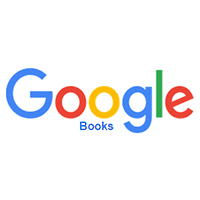-
Supreme Court Declines to Hear Authors’ Google Books Appeal, Leaving Second Circuit’s Fair Use Ruling Intact
05/03/2016
 The art-law community pays close attention to legal developments in the copyright arena, including cases involving the fair use defense to copyright infringement.
The art-law community pays close attention to legal developments in the copyright arena, including cases involving the fair use defense to copyright infringement.
This blog has been watching the Google Books litigation unfold for years; the case deals with whether Google’s ambitious project—in which the search engine company has undertaken a massive initiative to scan, digitize, index, and make publicly available short “snippets” of millions of books, many of which are still under copyright—constitutes infringement of the copyrights in those works.
A group of authors has argued that it is, while Google has argued that its actions are protected as “fair use” under federal copyright law (see 17 U.S.C. § 107). In 2013, we wrote about the Southern District of New York’s decision that the Google Books Library Project was protected by the fair use doctrine. See Authors Guild, Inc. v. Google Inc., 954 F. Supp. 2d 282 (S.D.N.Y. 2013). And this past fall, we covered the Second Circuit’s ruling affirming that district-court decision. See Authors Guild v. Google, Inc., 804 F.3d 202 (2d Cir. 2015).
Following their defeat in the Second Circuit, the author plaintiffs asked the Supreme Court to take up the case. In addition to the original plaintiffs, amicus curiae papers were filed on behalf of other prominent writers (ranging from sci-fi novelist Ursula LeGuin to musical theater legend Stephen Sondheim), urging that Google had stretched “fair use” too far. But a few weeks ago, the Supreme Court denied certiorari (it refused to hear the case). See Authors Guild v. Google, Inc., No. 15-849, 2016 WL 1551263, at *1 (U.S. Apr. 18, 2016). That means, in effect, that the Second Circuit’s decision remains in place as the final word on the matter.
The Second Circuit’s analysis is noteworthy not just because it ends the authors’ crusade to halt Google’s project, but also because the appellate panel’s lengthy analysis of the four statutory fair-use factors will now serve as guidance in other fair use cases in the circuit (for example, the recent lawsuit against appropriation artist Richard Prince, in which a motion to dismiss is now pending).
Our earlier post contains more detailed discussion of the Second Circuit’s opinion in the Google Books, including links to other commentators’ analyses. But the opinion was noteworthy for many reasons, including its emphasis on the project’s beneficial impact on public knowledge; its cautionary guidance that a commercial or for-profit use can still be fair use, especially where the use has “a convincing transformative purpose” and does not significantly compete with or that even total copying of 100% of a copyrighted work can be fair use if the copying “was reasonably appropriate to achieve the copier’s transformative purpose and was done in such a manner that it did not offer a competing substitute for the original.”
The Second Circuit’s decision, authored by the influential Judge Pierre Laval, also contains thoughtful discussion of the difficult concept of “transformativeness” in fair-use cases, including a warning against “oversimplified reliance” on the term and a statement that a “would-be fair user of another’s work must have justification for the taking.” Now that the Google Books case is over, expect parties, advocates, and judges involved in fair-use disputes to look closely at Judge Laval’s analysis as it applies to pending and future litigation in this Circuit, and throughout the country.
Art Law Blog
